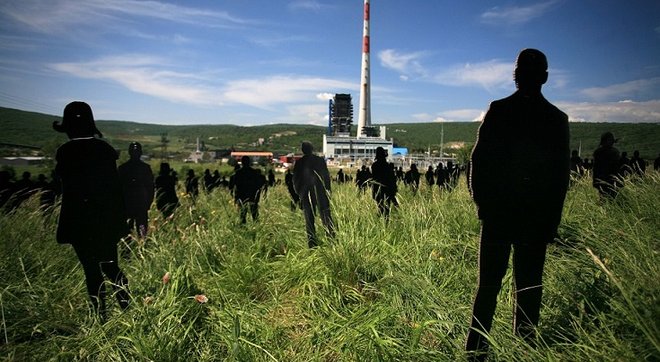NGOs demand transparency in negotiations over Plomin C coal project in Croatia
Croatian electricity company HEP on Monday announced that it had signed an exclusivity agreement to conduct further negotiations with Japan's Marubeni - a company which has been implicated in several corruption scandals.
Croatian electricity company HEP on Monday announced that it had signed an exclusivity agreement to conduct further negotiations with Japan's Marubeni - a company which has been implicated in several corruption scandals.
This 'news' seems to have mainly been aiming at showing some signs of life in the controversial Plomin C coal project, but has rather shown that the negotiations are going slowly.
It has been answered by a press release [hr] from Greenpeace, Zelena Istra and Zelena akcija (Friends of the Earth Croatia) demanding more transparency about what is being discussed, including the publication of the expected production and sales prices of the electricity, as well as public oversight of the negotiations.
HEP plans to sign a long-term power purchase agreement with the joint project company, which apart from raising questions about state aid, also threatens to bring high electricity prices for Croatian electricity consumers.
There is a threat of Croatian electricity customers paying more than necessary due to deals conducted behind closed doors, and since Marubeni is now in exclusive talks with HEP there is no excuse to avoid publishing information about the price of electricity from Plomin C, as there are anyway no competitors who may benefit from the information.
Information from the Croatian media so far has suggested that electricity from Plomin C would be sold for more than 70 EUR/MWh, whereas on EU markets it is currently around 30-45 EUR/MWh. In case of an unfavourable contract, the difference would be made up by Croatian electricity customers.
In neighbouring Slovenia, the newly constructed Sostanj 6 unit is expected to run up losses of around EUR 80 million annually at least for the first few years of operation, while the original investment price was EUR 602 and has today more than doubled. The situation could have been avoided if the project preparation had been conducted transparently and its lack of economic feasibility discussed before construction started.
Greenpeace, Zelena akcija and Zelena Istra are therefore calling on HEP to publish information on the conditions being offered to Marubeni in order to avoid potential later accusations of fraud and corruption.
Read the original version of the article here.
